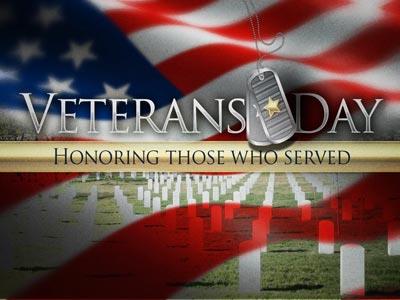-
Issues Of Life 3: Self-Defense, Firearms And The Military Series
Contributed by James H Boyd on Mar 26, 2003 (message contributor)
Summary: Did Jesus advocate pacifism? Is taking human life always wrong? Does "Turn the other cheek" mean that we must allow ourselves, our families and our nation to be at the mercy of those who wish to do us harm?.
Note: This message is a collaberation between myself and my friend Dave Pope
It has been said that a person can but minister out of their ’overflow’, that is, out of the abundance of the Word of God in them and their personal experience. It is with this thought in mind that we present this third and final installment to our "Issues of Life" series, in which we will examine the Bible’s teaching on self-defense, firearms and the military. I (Dave) came to saving faith in Christ on the 2d/3d September 1995, during OPERATION DELIBERATE FORCE, off the coast of Bosnia. No ordinary ’foxhole conversion’ this, as I was an Aviation Ordinanceman. This meant that my military responsibility was to assemble items of ordinance for tactical aircraft. Having seen plenty of the ’Desert Storm’ style bomb damage assessment films, I was ENTIRELY aware of the destructive power of these weapons of war. And, being a new believer, I had heard all my life that, "...thou shalt not kill" and "...vengeance is Mine, saith the LORD...’. So you can see the quandary I faced.
As our nation once again enters into a time of war, these complex issues become more pertinent than ever, especially for those of us who follow Jesus Christ, the Prince of Peace (Isaiah 9:6). As with all of the other issues covered in this series of teachings, the subject of self defense, firearms and the military cover a wide range of ethical and spiritual questions: Did Jesus advocate pacifism? Is taking human life always wrong? Does "Turn the other cheek" mean that we must allow ourselves, our families and our nation to be at the mercy of those who wish to do us harm? As we examine these subjects, we will begin by looking at some interesting instructions given by Jesus as He prepares His disciples for their mission:
And he said unto them, When I sent you without purse, and scrip, and shoes, lacked ye any thing? And they said, Nothing. (Luke 22:35)
Here, Christ asks the disciples if, when He was with them, they ever lacked any thing. The obvious answer is ’no’. However, notice His follow-up statement recorded in verse 36:
Then said he unto them, But now, he that hath a purse, let him take [it], and likewise [his] scrip: and he that hath no sword, let him sell his garment, and buy one.
Notice "...but NOW,...’ He is preparing them for the challenges that will come as they carry out the Gospel plan. While there certainly are circumstances in which a believer may be called on to lay down his/her life for the sake of the Gospel (Matthew 10:39; John 12:25; Acts 7:58-60; 12:2; Hebrews 11:35-37), it is not simply a matter of being a martyr for martyrdom’s sake. There are instances in which self defense is a perfectly proper and necessary part of stewarding our lives to God’s glory. Just like eating right ( Proverbs 25:16, 23:1-3), exercising ( I Timothy 4:8, I Corinthians 3:16-17), and other activities that improve the physical body and sharpen the intellect (I Timothy 4:16), God wants us to do our part in living out our days and fully accomplishing His plan for our lives. As King David so eloquently put it: " For in death there is no remembrance of thee: in the grave who shall give thee thanks?" (Psalm 6:5)
"But didn’t Jesus tell us to turn the other cheek?" Yes (Matthew 5:38-48), but it is important to keep in mind the context He was speaking in. In Jesus’ day, a common form of insult was to give someone a backhand slap to the face. What Jesus was saying was this: If someone insults you, don’t stoop to their level. Don’t seek personal vengeance-that is God’s perogative (Romans 12:19). Instead, simply turn the other cheek and walk away. He was not, in any way implying that if you are physically threatened or attacked that you cannot defend yourself. There is a huge difference.
By directly instructing His followers to purchase a sword, Jesus clearly shows that He did not see owning a weapon as being sinful. In fact, He described His mission as bringing a sword to the earth (Matthew 10:34). This is echoed throughout the entirety of Scripture: Abraham armed his servants to pursue his brother’s captors (Genesis 14:14). As he was dying, Isaac blessed his son Jacob to live by the sword (Genesis 27:38-40). Part of God’s covenant with Israel was that their enemies would fall before them by the sword (Leviticus 26:7-8). As these verses abundantly show us, weapons in and of themselves are amoral. They can be used for good, as well as for evil.(1)
When a murder does occur, God’s prescription is simple: The murderer is to be executed (Genesis 9:6; Exodus 21:12-15, 20, 23-25, 29; Leviticus 24:17-22; Numbers 35:30-34; Romans 13:1-4) (2). Again, note that the focus of judgement is the criminal, not the inanimate object used in committing the crime. Nowhere in the Bible does God order any sort of confiscation of weapons. As we have seen, He recognizes their use as being a necessary part of life. As theologians J. P. Moreland and Norman Geisler put it:

 Sermon Central
Sermon Central



